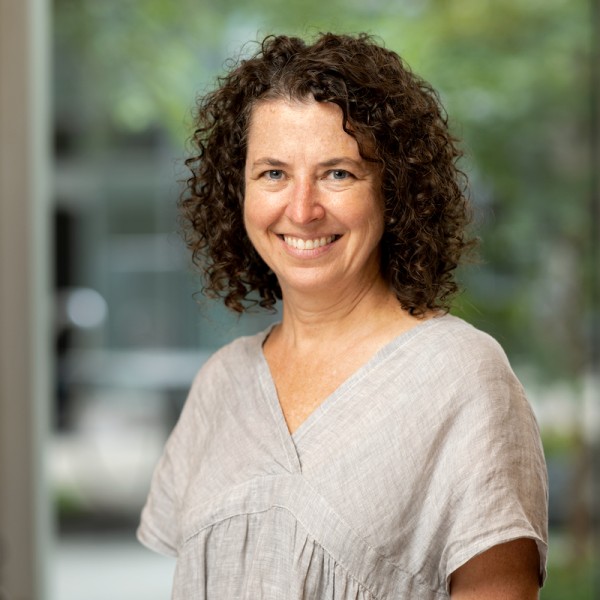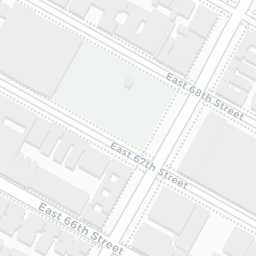
Corita R. Grudzen, MD, MSHS
We post reviews for MSK healthcare providers who have at least 30 patient experience surveys completed. If you do not see reviews for a provider, it may be because they do not yet have enough survey responses, or the provider may not be part of the group of healthcare providers included in the survey.
Only outpatient providers are included in the survey. Healthcare providers who only work in the hospital or in urgent care are not included in the survey. Pathologists or researchers who do not provide direct care to patients do not have reviews.
Areas of Expertise
Conditions I Treat
- Quality of life
- Complications of cancer
My Specialties
- Palliative care
- Emergency cancer-related care
- Geriatrics
Get to Know Me
I am an emergency medicine physician who is passionate about caring for patients with serious illness, such as cancer. I was attracted to emergency medicine for its core mission — to treat patients regardless of insurance or legal status — and the window the Emergency Department (ED) provides into public health. To that end, my research centers on understanding and improving the quality of care that patients with life-limiting illness receive in the ED, with a focus on matching patients to treatments that most closely align with their care goals.
Read more
I first entered the research arena as an undergraduate at Stanford University, where I spent a quarter developing my own research project under the guidance of an esteemed biologist at the Hopkins Marine Station. Although I was captivated by the process of scientific inquiry, I quickly realized that my passion was human health. I envisioned that a career as a clinician-investigator would allow me the optimal balance of direct patient care and investigation into larger societal threats to health; I thus chose to pursue a career in medicine at the University of California, San Francisco (UCSF).
At UCSF, I met many role models who cared for patients on an individual level while using health services research methods to study and advance larger issues. Providing patient care informs what is important in my research. The study of these topics allows me to investigate new models of care while working towards structural changes in healthcare nationwide; this is especially relevant for the ED setting. Although advances in medical technology and clinical research have made it possible to restore physical functioning for some patients with acute illness and injury, a significant number of patients in the ED have chronic, life-limiting illness, such as cancer, and many are in crisis because of pain and other burdensome symptoms.
I completed my residency in emergency medicine at the New York University Grossman School of Medicine and Bellevue Hospital, where I served as Chief Resident during my final year. After witnessing the frequent discordance between patients’ wishes and the end-of-life medical attention that they received, I became determined to dedicate my career to improving care for this population. I was subsequently accepted into the Robert Wood Johnson Clinical Scholars Program, where I received a Master of Science in Health Services from the University of California, Los Angeles. Through the study of health services research methods, including econometrics, I received the tools and mentorship to conduct innovative research with communities, organizations, practitioners, and policymakers on issues important to health and wellbeing.
My focus as a junior investigator turned to developing interventions that integrate palliative care and emergency medicine; this remains my primary research focus today. Using the National Institutes of Health (NIH) Stage Model, I began at Stage 0, delineated the barriers and facilitators to palliative care delivery in the ED, and conducted a patient and family caregiver palliative care needs assessment. The work led to the first randomized controlled trial testing the efficacy of palliative care in the ED (NIH Stages 1 and 2). This culminated in one of my most notable contributions to the field, detailed in a JAMA Oncology article describing how early palliative care improves quality of life in patients with advanced cancer presenting to the ED.
During this time, I gained additional expertise in health services research, qualitative methods, patient-centered outcomes research, pragmatic trials, emergency care, and palliative medicine. I served on the National Advisory Board for the Center to Advance Palliative Care’s IPAL-EM initiative to integrate palliative care and emergency medicine. Additionally, my involvement as an Innovation Advisor to the Centers for Medicare and Medicaid Innovation led to a $12 million-plus Innovation Challenge grant to help define key interventions for geriatric patients in the ED to improve health and quality of care while decreasing costs for years to come. I also acted as the Chair of the 2016 Society for Academic Emergency Medicine Consensus Conference (with support from the Patient Centered Outcomes Research Institute [PCORI], the Agency for Healthcare Research and Quality [AHRQ], and the National Institute on Aging [NIA]) to bring together leaders within and outside of emergency medicine to set the research agenda on shared decision-making for years to come.
Currently, I am the principal investigator of two multi-site pragmatic trials funded through PCORI and the NIH that cumulatively total more than $20 million. The first grant, sponsored by PCORI, is a comparative effectiveness trial of nurse-delivered telephonic palliative care versus traditional outpatient palliative care for seriously ill, older adults discharged from the EDs across 18 hospitals. The second study, “Primary Palliative Care for Emergency Medicine (PRIM-ER),” is an NIH-funded pragmatic trial examining the effect of implementing palliative care education, clinical decision support, and audit and feedback mechanisms across 35 EDs throughout the United States. I continue to grow a robust network of national collaborators, serving as founding Co-Chair of the National Cancer Institute Comprehensive Oncologic Emergencies Research Network and expanding my PCORI-sponsored study to include 18 sites nationally, along with the 35 clinical sites participating in my NIH-funded trial.
At Memorial Sloan Kettering Cancer Center (MSK), I am Head of the Division of Supportive and Acute Care Services. I look forward to continuing to make individual contributions to patient care, education, and research while building capacity in the broader clinical, education, and research community. At MSK, I will partner with the leaders of the General Internal Medicine, Hospital Medicine, Supportive Care, and Urgent Care Services to represent these important groups in strategic planning and clinical operations.
In my free time, I enjoy spending time with my partner and children, running (slowly), and reading fiction and memoir.
An emergency medicine physician is a doctor with special training in treating people in the emergency room.
- Head, Division of Supportive and Acute Care Services, Department of Medicine
- Fern Grayer Chair in Oncology Care and Patient Experience
Conditions I Treat
- Quality of life
- Complications of cancer
My Specialties
- Palliative care
- Emergency cancer-related care
- Geriatrics
- Cancer care for older adults
Education
- MD, University of San Francisco
- MSHS, University of California, Los Angeles
Residencies
- Emergency Medicine - New York University Grossman School of Medicine
Fellowships
- Health Services Research - Robert Wood Johnson Clinical Scholars Program, University of California, Los Angeles
Board Certifications
- Emergency Medicine
Awards and Honors
- Leadership in Aging Fellow, Brookdale Foundation (2009-2011)
- National Committee Member, Emergency Department-based Palliative Care Initiative, Center to Advance Palliative Care (2010-present)
- Pain and Society Fellow, Mayday Foundation (2010-2011)
- Research Scholar, American Association of Hospice and Palliative Medicine (2010-2011)
- Fellow, American College of Emergency Physicians (2011-present)
- Innovation Advisors Program, Centers for Medicaid and Medicare Services, Innovation Center (2012-2013)
- Practice Change Leader in Aging and Health, Hartford Foundation (2013)
- Outstanding Contribution to Research, Academy for Women in Academic Emergency Medicine (2015)
- Sojourn Scholars Award, Cambia Health Foundation (2015-2017)
- Fellow, Executive Leadership in Academic Medicine (ELAM) (2016-2017)
- Abigail and Gary Conrad Emergency Medicine Research Award, University of Pennsylvania (2019)
- Fellow, Higher Ambition Leadership Institute (2019-2020)
Insurance Information
Understanding your insurance options is an important part of managing your cancer care. We have relationships with many common healthcare providers and plans.
In Network Coverage Type
PPO
In Network Coverage Type
PPO, POS, EPO, HMO
In Network Coverage Type
HMO, PPO
In Network Coverage Type
HMO, EPO PPO, POS
In Network Coverage Type
PPO, POS, EPO, HMO
Offers a qualified health plan from the Health Insurance Marketplace. Call Emblem to learn more.
In Network Coverage Type
PPO, HMO
In Network Coverage Type
PPO
In Network Coverage Type
HMO, EPO
Offers a qualified health plan from the Health Insurance Marketplace. Call Fidelis to learn more.
In Network Coverage Type
EPO, HMO, PPO, POS
Offers a qualified health plan from the Health Insurance Marketplace. Call Healthfirst to learn more.
In Network Coverage Type
HMO
In Network Coverage Type
PPO
In Network Coverage Type
EPO
In Network Coverage Type
EPO
In Network Coverage Type
Federal Government
In Network Coverage Type
HMO
City Employee Health Plans (Gold and Gold Care)
In Network Coverage Type
PPO, POS, EPO, HMO
In Network Coverage Type
State Government
Don't see your carrier or plan? We can help you understand your coverage.
If you don't have health insurance or are worried that your care may not be fully covered, our financial assistance programs may be able to help.
If you have questions about insurance, call us at 646-497-9176.
Contact and Location
Dr. Grudzen sees patients at one location.







Looking to see a doctor at a different location? See all MSK locations.
Colleagues
Doctors at Memorial Sloan Kettering work as teams, with specialists from all different areas. This allows us to consider all your needs together, and to give you the best possible care.
Clinical Trials

Memorial Sloan Kettering's doctors and scientists are constantly developing new treatments for cancer. MSK is typically running hundreds of clinical trials at a given time.
You may be able to participate in a clinical trial even if you are new to MSK. Search our online directory to find trial information and see more about who can participate.
Search clinical trialsResearch and Publications
Visit PubMed for a full listing of Dr. Grudzen’s journal articles. Pubmed is an online index of research papers and other articles from the US National Library of Medicine and the National Institutes of Health.
See all on PubMedDisclosures
Doctors and faculty members often work with pharmaceutical, device, biotechnology, and life sciences companies, and other organizations outside of MSK, to find safe and effective cancer treatments, to improve patient care, and to educate the health care community.
MSK requires doctors and faculty members to report (“disclose”) the relationships and financial interests they have with external entities. As a commitment to transparency with our community, we make that information available to the public.
Corita R. Grudzen discloses the following relationships and financial interests:
No disclosures meeting criteria for time period
If you’re a patient at MSK and would like more information about your doctor’s external relationships, please talk with your doctor.
The information published here is a complement to other publicly reported data and is for a specific annual disclosure period. There may be differences between information on this and other public sites as a result of different reporting periods and/or the various ways relationships and financial interests are categorized by organizations that publish such data.
This page and data include information for a specific MSK annual disclosure period (January 1, 2023 through disclosure submission in spring 2024). This data reflects interests that may or may not still exist. This data is updated annually.
Learn more about MSK’s COI policies here. For questions regarding MSK’s COI-related policies and procedures, email MSK’s Compliance Office at ecoi@mskcc.org.